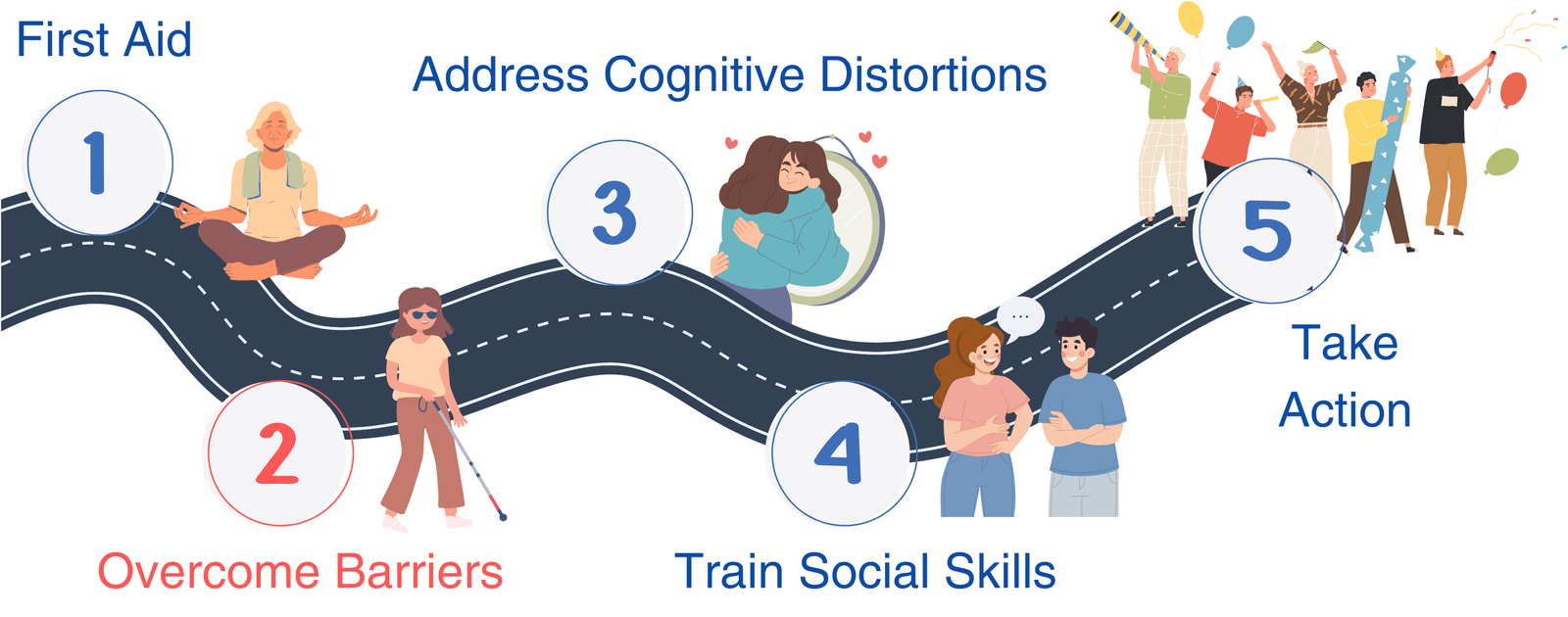
Barriers to Social Contact
Is it possible for you to get in contact with other people regularly?
Can you choose the people you are in contact with?
Are you able to meet new people regularly (at least twice a month) if you’d like to do so?
If you have answered “no” to any of these questions, chances are you have a structural or logistical problem in your life that prevents you from having normal contact with other people.
If possible, it is reasonable to address these kinds of issues first before moving on to the other interventions mentioned on this site. When your loneliness is due to a structural or logistical barrier to social contact, the good news is that you probably don’t need to train your social skills or examine your cognitive distortions to overcome it—though you might benefit from both anyway. All you might need to do is overcome the barrier preventing you from getting in touch with other people.
The bad news is that this can be difficult and sometimes impossible. However, just because our circumstances are not in our favor does not mean we have to play the role of the powerless victim. Sometimes there are simple, practical steps we can take to change our situation or approach it differently and increase our sense of social connection regardless of how hopeless things may seem to us.
Examples of structural or logistical barriers to social contact can be:
- Being deaf-mute or blind
- Being so sick that you physically can’t leave your bed
- Being cognitively or physically impaired
- Being impaired by the side effects of old age
- Being in jail or held in captivity elsewhere
- Having one’s freedom and needs violently suppressed by others
- Living in a remote area or a small village with only a few people you can meet regularly
- Facing language barriers
- Having a job so demanding that you don’t have time to connect with others
Exercises to overcome barriers to social contact
First, think about:
How could you get in contact with other people regularly?
How and where could you meet new people?
What steps are leading there? What is standing in the way? What would need to change? What would you need to do?
Write down your answers.
Depending on where you live, there might be offers from aid organizations, support groups, volunteers, caregivers provided by the healthcare system, or neighbors who would help if you asked. You might also find neighborhood get-togethers you could attend, crisis hotlines you could call, free opportunities to learn another language, less demanding jobs, and so on. In the very extreme situation that someone is holding you in captivity or suppressing your freedom in other ways, there may still be ways to escape, reach out to other people for help, or flee to another city or country when possible.
- Reach out to other people and ask if they can help you find the assistance described above.
- Look online for the specific help you need (e.g., a group to meet, a language course, etc.) and make use of the available offers.
What to do when you can’t change the barriers causing your loneliness?
Sometimes, we are so sick, or powerless in our situation that we truly cannot change the structural issues causing our loneliness. This does not mean we should stop looking for opportunities to do so. Yet sometimes, all that seems left for us is to try to accept our current situation. One thing that can help to deal with acute feelings of loneliness is the First Aid section on the Road Out of Loneliness, which includes a naming meditation and a breathing exercise described here.Sometimes we are so sick or powerless in our situation that we truly cannot change the structural issues causing our loneliness. This does not mean we should stop looking for opportunities to do so. Yet sometimes, all that seems left for us is trying to accept our current situation. One thing that can help to deal with acute feelings of loneliness is using the meditation and breathing exercises mentioned in the First Aid section described here.